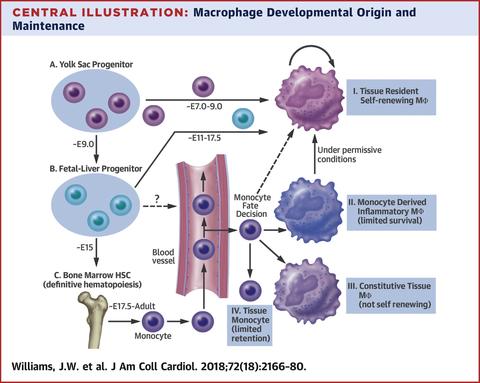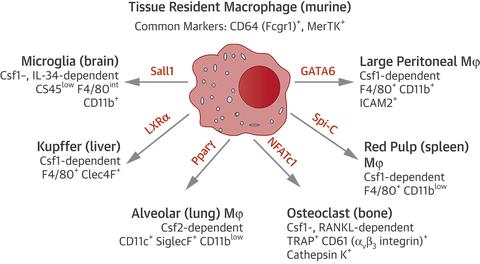Research Projects
Cardiovascular disease (CVD) remains the leading cause of death world-wide, with approximately 32% of all deaths being directly related to CVD-related complications. Atherosclerosis is a primary underlying disease of the arteries that contributes to many of the complications associated with CVD, including arterial stiffness, reduced blood flow, and thrombosis. Atherosclerosis manifests as complex cellular-rich plaque that contain a diverse array of stromal and immune cells; including smooth muscle, fibroblast, endothelial, macrophage, monocyte, neutrophil, and T cells. Macrophages are the most common immune cell in plaque, where they are recognized as major cytokine producers and important mediators of efferocytosis. In addition, many macrophages take up large quantities of cholesterol, leading to the formation of intracellular lipid droplets and a foamy morphology (termed Foam Cell). Yet mechanisms describing macrophage origins, differentiation, and activation during disease pathogenesis remain to be fully understood. Our current projects seek to extend our understanding of the basic principles of atherosclerotic plaque initiation and expansion, with a focus on the monocyte/macrophage lineage cells.
Major Projects:
1- Macrophage heterogeneity in the progression of atherosclerosis
2- Endothelial-macrophage crosstalk in the initiation of disease and recruitment of inflammatory monocytes
3- Lineage tracking and fate-decisions of monocyte entering inflamed tissue
4- Molecular determinants of foamy macrophage differentiation

